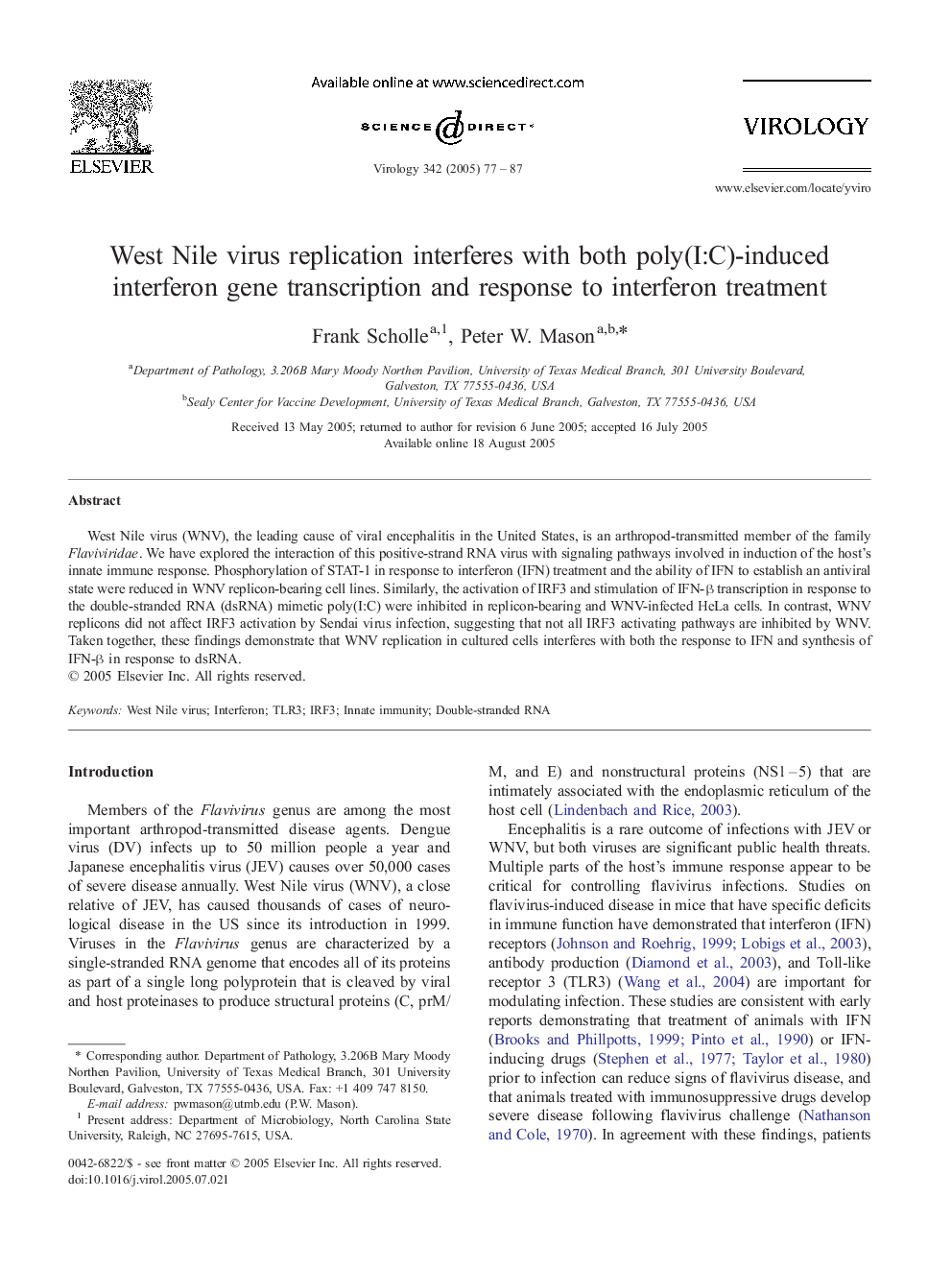| Article ID | Journal | Published Year | Pages | File Type |
|---|---|---|---|---|
| 9287364 | Virology | 2005 | 11 Pages |
Abstract
West Nile virus (WNV), the leading cause of viral encephalitis in the United States, is an arthropod-transmitted member of the family Flaviviridae. We have explored the interaction of this positive-strand RNA virus with signaling pathways involved in induction of the host's innate immune response. Phosphorylation of STAT-1 in response to interferon (IFN) treatment and the ability of IFN to establish an antiviral state were reduced in WNV replicon-bearing cell lines. Similarly, the activation of IRF3 and stimulation of IFN-β transcription in response to the double-stranded RNA (dsRNA) mimetic poly(I:C) were inhibited in replicon-bearing and WNV-infected HeLa cells. In contrast, WNV replicons did not affect IRF3 activation by Sendai virus infection, suggesting that not all IRF3 activating pathways are inhibited by WNV. Taken together, these findings demonstrate that WNV replication in cultured cells interferes with both the response to IFN and synthesis of IFN-β in response to dsRNA.
Related Topics
Life Sciences
Immunology and Microbiology
Virology
Authors
Frank Scholle, Peter W. Mason,
